Tobacco: The UpRISE story
Tobacco remains the leading preventable cause of death in the United States. Its effects are felt more heavily in certain populations that are intentionally targeted by the tobacco and vape industry. Beyond the unequal burden of death and disease in these communities, the industry causes irreversible harm to the environment, manipulates government systems, and avoids accountability through loopholes in regulation—making tobacco not only a public health issue, but one tied to deeper systemic problems. This training provides examples of how the tobacco industry abuses its power. It also introduces the UpRISE youth movement, which is designed to amplify the voices of young people targeted by tobacco companies and to identify and address the root causes of nicotine use.
Building and Maintaining a Youth Board:
From building a youth board from the ground up to supporting long term youth engagement, this training focuses on practices that support authentic power sharing between youth and adults. Learn how to set young people up for success, and embrace your role as an adult coordinator. The training closes with tips from young people on how to be a good adult partner.
Virtual Youth Engagement
UpRISE’s Virtual Youth Engagement Sustainability Training provides tips to keep virtual meetings engaging for young people and suggests activities using the core principles of the Social Justice Youth Development framework. While the training was created to help guide adult coordinators working with youth in local youth coalitions, it would be useful to anyone looking to create an engaging online environment.
Approach to Dilemmas in Youth Work Practice
Authentically partnering with young people is full of complexity, and nuance. Given the multiple dimensions of power that operate in this work, dilemmas of practice arise. In this training, we provide a framework for navigating dilemmas in youth work. This training expands upon Larson the & Walker’s (2010) study that identified practices of expert youth workers in addressing dilemmas. Our additions to this framework focus on centering justice and equity. The training opens with an introduction to the expanded framework, followed by two real-life situations experienced by seasoned youth workers. For each scenario, we propose possible actions youth workers can take in addressing dilemmas of practice that center relationships, healing, accountability, and justice.
Youth-led Townhall On Punitive Approaches To Vaping
UpRISE partnered with an UpRISE coalition, YAASPA, to host a youth-led townhall to explore young people’s experiences with punitive approaches to addressing vaping within schools. Youth identified areas of concern and potential solutions to these persistent challenges.

